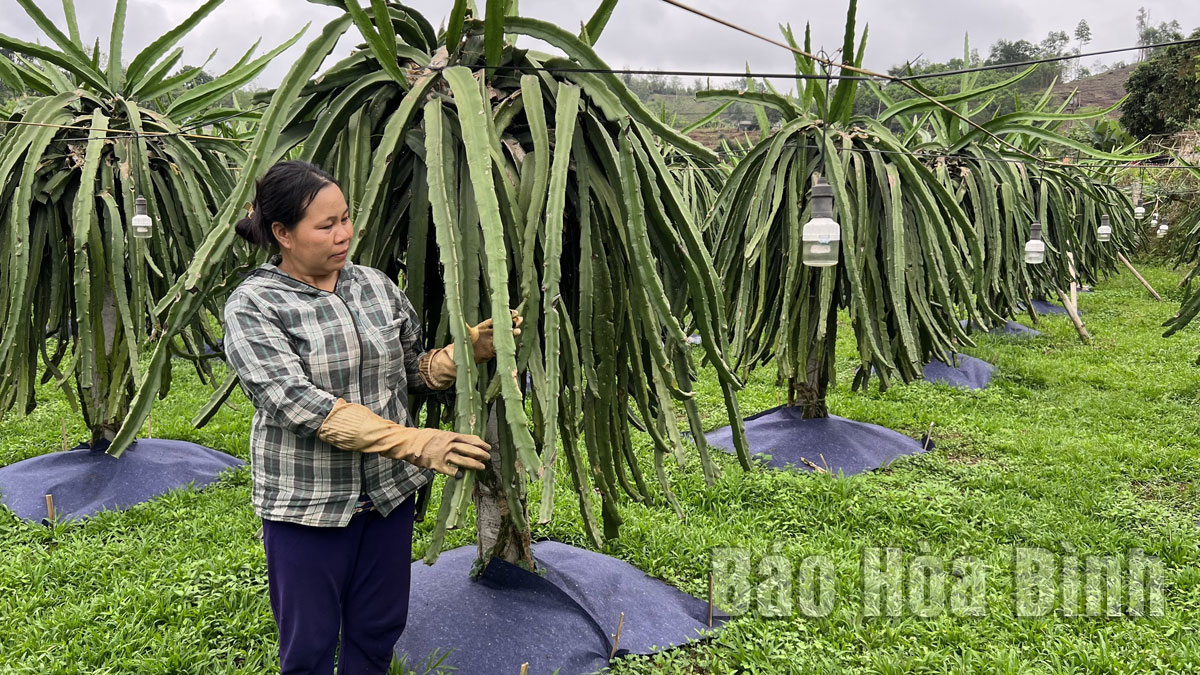(HBO) – Farmers in Dong Lai commune in Tan Lac district have successfully piloted and are expanding the model of off-season red flesh dragon fruit farming as it helps increase income and improve people’s living conditions.
An off-season dragon fruit farm
in Doi Bung hamlet, Dong Lai commune.
After visiting the models in the northern provinces of Vinh Phuc and Phu Tho,
farmers in Dong Lai commune in 2021 carried out a pilot programme on growing
1,000 m2 of off-season dragon fruit in Doi Bung hamlet.
The red flesh dragon fruit grows well in the area. Up to now,
the whole commune has replicated fruit dragon farming on two hectares. Many
households have considered it the main source of income.
Red flesh dragon fruit grown with the conventional method is
20,000 VND (0.85 USD) per kilo, so farmers can get a profit of 250-300 million
VND per ha per year.
With lighting techniques to produce off-season fruits, there are
4-5 crops per year instead of 2-3 crops as usual. Thus, farmers can harvest
fruit almost all year round with guaranteed quality.
During the Lunar New Year celebration and the full moon of
January, gardeners always have fruit to supply to the market.
Bui Van Thanh, Vice Chairman of Dong Lai Commune People's
Committee, said that the pilot model in Doi Bung hamlet fully meets the
requirements in the capital, farming techniques, fertilisers, and lighting
system. Proving effective after two years, the model is expanded in many hamlets
with similar conditions.
Farmer Bui Van Thanh, from Doi Bung hamlet, said as being chosen to join the
pilot model, he converted his garden to grow dragon fruits. Seeing the farming beneficial, he expanded the area to 3,000 m2 with 600 trees.
The fruiting season is on the occasion of the Lunar New Year
festival and the full moon of lunar January. He can sell a kilo of fruit for
30,000-35,000 VND, one and a half times higher than the price in the main crop.
Bui Thi Khuyen, from Doi Bung hamlet, said her family planted
200 off-season red flesh dragon fruit trees and earned nearly 30 million VND,
equal to the profit she got in a year from maize farming.
Dong Lai commune authorities have been taking measures to engage
farmers in off-season dragon fruit farming. They also help promote linkage
between growers and businesses, strengthen trade promotion, and find markets
for the fruit./.



